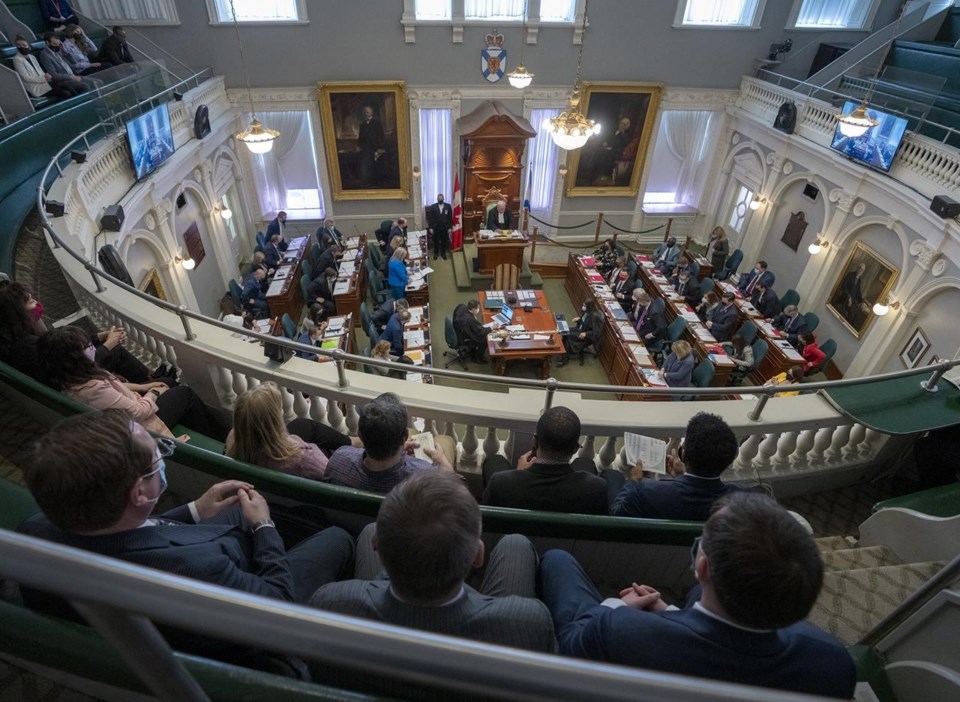HALIFAX — The Nova Scotia legislature was set Thursday to conclude a fall sitting marked by rancorous debate and opposition delay tactics after the government extended work hours to push through its agenda.
Frustration has boiled over from both benches over the past four weeks, prompting some members to call for an alternative to sitting in the legislature until midnight.
Premier Tim Houston told reporters his government will consider ideas such as setting a calendar of working days for the spring and fall sessions. Currently, the governing party is only required to give 30 days' notice ahead of the opening of a session, with no indication of how long it will last.
“There’s no question, I think every member has been frustrated at times with how things were proceeding or not proceeding," the premier said. "So I think it is time to sit down and look for ways to make it (the legislature) more effective."
The fall sitting opened on Oct. 12, and just over a week into proceedings the Progressive Conservative government moved to extend hours following some previous delay tactics from the opposition. It extended the regular 1 p.m. to 6 p.m. work day until midnight.
The Opposition Liberals and NDP then decided to use up those extra hours by calling for recorded votes on bills clause by clause. Under the rules, that meant bells warning of a pending vote were rung for up to an hour each time, bringing house business to a halt.
“Ringing the bells for an hour and then supporting the (bill’s) clause, that didn’t seem to serve Nova Scotians that well,” said Houston, who added that any changes should be done by considering how other provincial legislatures operate.
Opposition Liberal Leader Zach Churchill has defended the use of the bells as a filibuster tactic to keep the government in the legislature for more days, ensuring there are more question periods. But he agreed that change is needed, and he targeted the use of extended hours, which the previous Liberal government also used to its advantage.
“I don’t think that hours should arbitrarily be extended for the sole purpose of getting through the house (session) sooner and having less question periods,” said Churchill. “There might be extenuating circumstances where extending those hours are critical, but to … do that to try to tire the opposition out or shake them off, I don’t think is right.”
NDP Leader Claudia Chender said she’s been pushing for a set legislative calendar for almost seven years.
“We need to do what every other province in the country does, we need to know when we are required at work and have some reasonable expectation that when we’re at work, we’ll get things done,” she said.
Government house leader Kim Masland said she would like to start considering potential changes soon but is not committing to any reforms before the spring sitting.
“I think it will take the house leaders coming together and caucuses coming together to talk about how we can make the people’s house more effective and efficient,” she said.
This report by The Canadian Press was first published Nov. 9, 2023.
Keith Doucette, The Canadian Press



